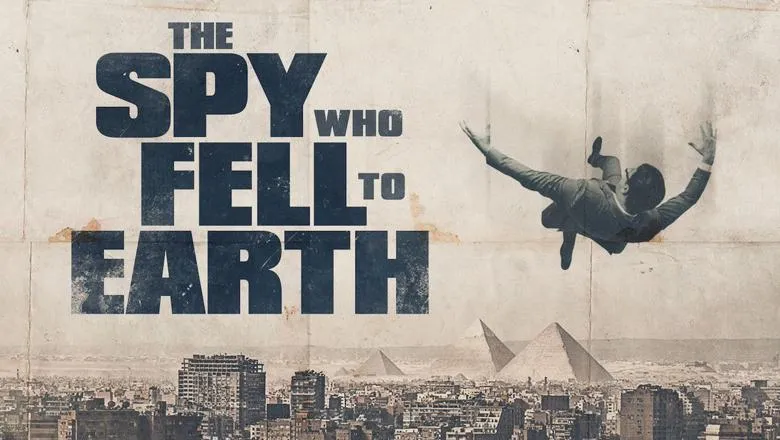18 April 2019
The Spy Who Fell To Earth
Based on Dr Ahron Bregman’s book,'The Spy Who Fell to Earth' is a new Netflix documentary exploring the life and mysterious death of Dr Ashraf Marwan, an Egyptian millionaire and Israeli spy.

On 27 June 2007, Dr Ashraf Marwan, Egyptian millionaire and unmasked Israeli spy, fell from his fifth-floor London flat to his death. To this day, the events directly leading up to Marwan’s untimely end are still a mystery.
In a new Netflix documentary based on historian Dr Ahron Bregman’s 2016 book, The Spy Who Fell to Earth, director Tom Meadmore explores the mysterious circumstances of Marwan’s death and follows Bregman’s investigation that led him to, in fact, unmask Marwan as an agent of Israeli intelligence (Mossad). However, Bregman believes that Marwan was not the person the Israelis thought he was. Recently, Security Studies had the opportunity to watch this unique documentary and speak with both Bregman and Meadmore.
Ashraf Marwan, a close aide to Egyptian President Sadat from 1971 to 1976, is lauded as Israel’s greatest spy for the intelligence he provided Mossad as a ‘walk in’ prior to the 1973 Yom Kippur War. Marwan relayed to Mossad strategic information on Egyptian military assets and war plans, but despite this invaluable intelligence, Israel still found itself unprepared for the coordinated offensives launched by Egypt in the Sinai Peninsula and Syria on the Golan Heights on 6 October 1973. Bregman argues that this was the result of Marwan, the “perfect spy,” deceiving Israeli intelligence.
“I believe he misled Israel,” Bregman told Security Studies. “The Israelis and Mossad disagree; they strongly believe he was their man... [But] he was, in fact, the jewel in the Crown of the Egyptian deception plan before the 1973 war in which Israel was caught totally unprepared.”
Meadmore’s documentary reveals that like the circumstances around Marwan’s death, the evidence of his loyalties, whether solely to Israel or Egypt, remains largely undetermined and highly disputed. For example, Marwan’s widow, Mona, along with many Egyptian officials, revere her late husband as an Egyptian hero who was likely murdered by Mossad, while former Mossad Directors Shabtai Shavit and Zvi Zamir deny such allegations and hold that Marwan was Israel’s loyal spy. However, given the lack of evidence, whether Marwan was a spy for Egypt, Israel, or both appears to depend on the eye of the beholder.
Aside from the debate on where Marwan’s loyalties resided, Meadmore also follows the relationship that developed between Bregman and the spy he unmasked. Once Bregman knew the alleged double agent’s identity, he unmasked Marwan in an interview published in the magazine Al Ahram al Arabi. Upon the release of this interview, accompanied by Bregman’s photo, the historian began to worry, wondering “what would be the reaction of Marwan, of the Egyptians, of the Mossad.” However, this revelation would set in motion a series of event for which Bregman had not anticipated.
“Soon after the publication of my interview, Marwan phoned me. He said, ‘I’m the person you’ve written about’, and he offered that we meet. I think he wanted to stop me from publishing any more information about him.”
Regardless of the potential risks, Bregman met with Marwan at the Intercontinental Hotel in London for their first and only face-to-fact meeting, during which Marwan told Bregman that he was concerned for his own safety. Following this encounter, Bregman would stay in consistent contact with Marwan for nearly five years until the former spy met his untimely end.
In the documentary, Bregman expresses that over the course of their conversations, he became quite concerned for Marwan’s safety, especially as they spoke more about their families. As a result, Bregman understood that if anything were to happen to Marwan, it would likely be on his conscience. Ironically, Bregman began looking for ways to protect the very spy that he sought to unmask.
“It was a strange relationship between a Spy- Marwan- and the person who unmasked him as a Spy- I,” Bregman recounted. “We met once face-to-face and were due to meet up near King’s on the day his body was found in a rose garden in central London. Otherwise, we communicated by sending faxes and talking on the phone. We were in touch for nearly five years.”
As to avoid given away anything else about this fascinating story, we will end this article with a comment from the director Tom Meadmore about what drew him to Bregman’s book after being asked by Salon Pictures and Producer Nick Taussig to direct a documentary on The Spy Who Fell to Earth.
“I was compelled by the idea of a man [Bregman] who, driven by ambition, made a choice to unmask the world's greatest spy and inadvertently set in motion the very events which led to the spy’s mysterious death. I was compelled by the questions ‘what are the personal consequences?’, and ‘How do you live with something like that?’
“But this isn’t the only story here. The story of Ashraf Marwan, the Egyptian spy himself is equally compelling. You have a man who, regardless of which side he was on (Israel, Egypt or another?), his actions directly influenced the outcome of one the Middle East's most important wars. Without the actions of Ashraf Marwan, perhaps Egypt and Israel – mortal enemies for the previous two decades – would have never made peace.”
Watch The Spy Who Fell to Earth today on Netflix UK
Dr Ahron Bregman is Senior Teaching Fellow at the Department of War Studies.

